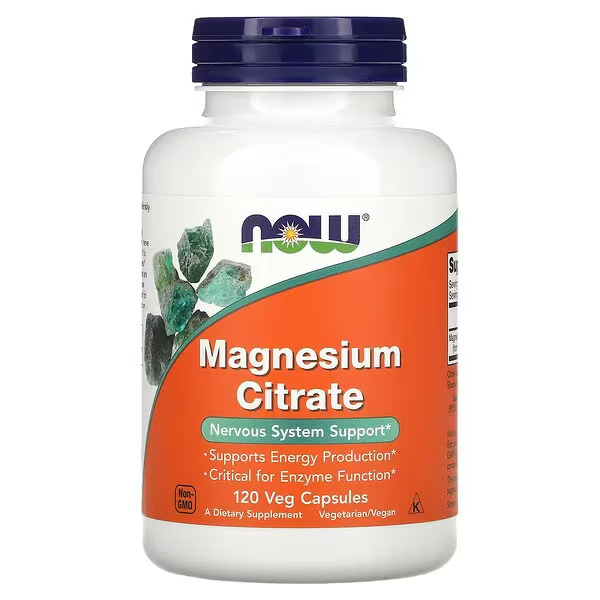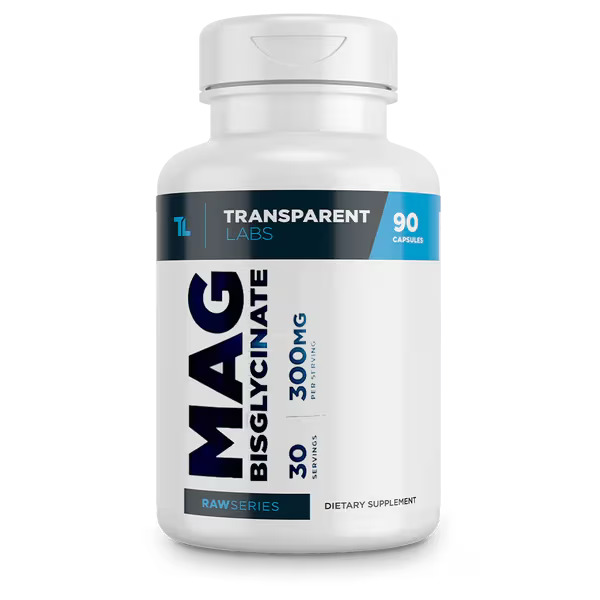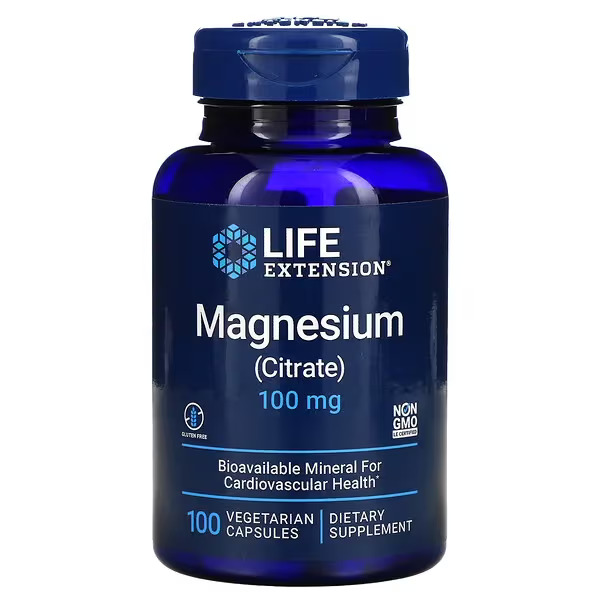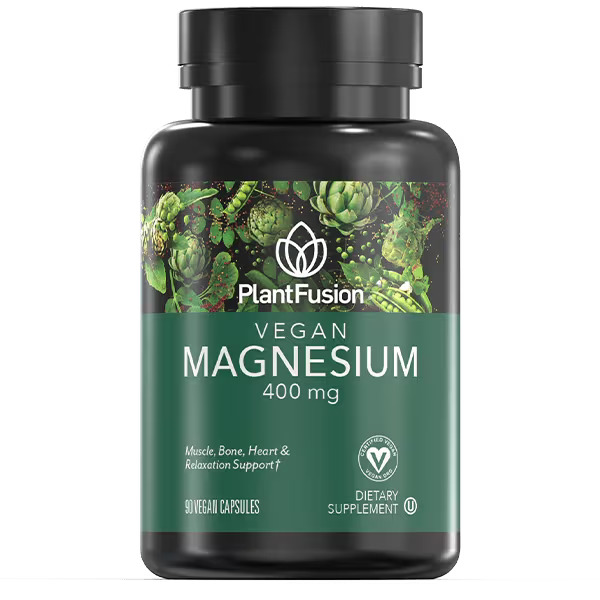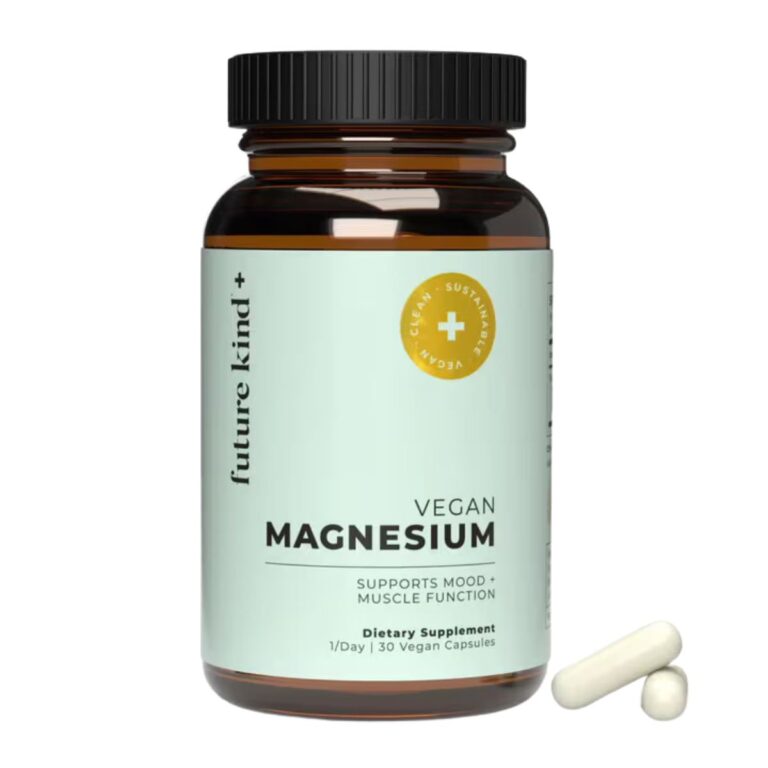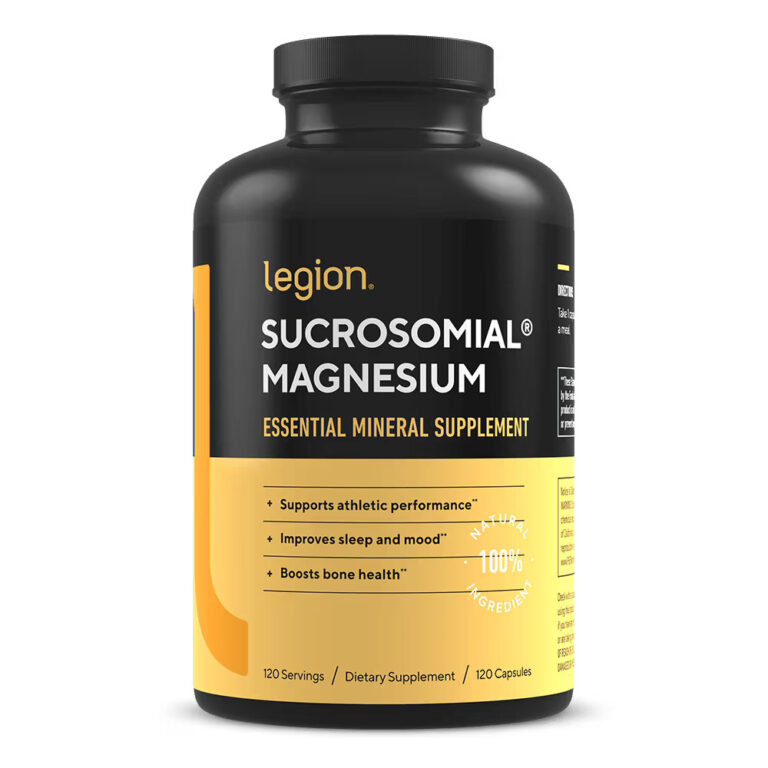6 Best Magnesium Supplements For Muscle Cramps In 2026
If you have frequent muscle cramps, you know that they are no fun. Whether they appear out of the blue, or because you made a bad movement, or after a workout, the truth is that you don’t want to get them. They hurt, and they might leave your muscles sore for hours. There are several reasons for muscle cramps to occur, but a possible reason might be due to magnesium deficiency. So, if that is the case, what is the best magnesium for muscle cramps?
There are different forms of magnesium, but not all of them are good for muscle cramps. Here, we’ve selected the top magnesium for muscle spasms. Also, we’ll go into detail about other strategies to help combat muscle cramps.
In a hurry?
In a hurry and can’t keep reading? How about you check out the NOW Foods Magnesium Citrate.
There are different forms of magnesium, but what type of magnesium is best for leg cramps? It seems that magnesium citrate and magnesium bisglycinate might have the greatest benefits, and it’s all due to their absorption in the body (bioavailability).
Our certified nutritionists, professional athletes, and medical professionals have put 20 magnesium food supplements for muscle cramps through extensive testing, and 6 of them made the cut. The products were analyzed on 3 of the most important criteria, and our expert team spent 8 weeks extensively testing most of them to evaluate them thoroughly. In addition to this, we’ve also perused hundreds of online customer reviews. We continually refresh our lineup, so please share your feedback and experiences and join the conversation!
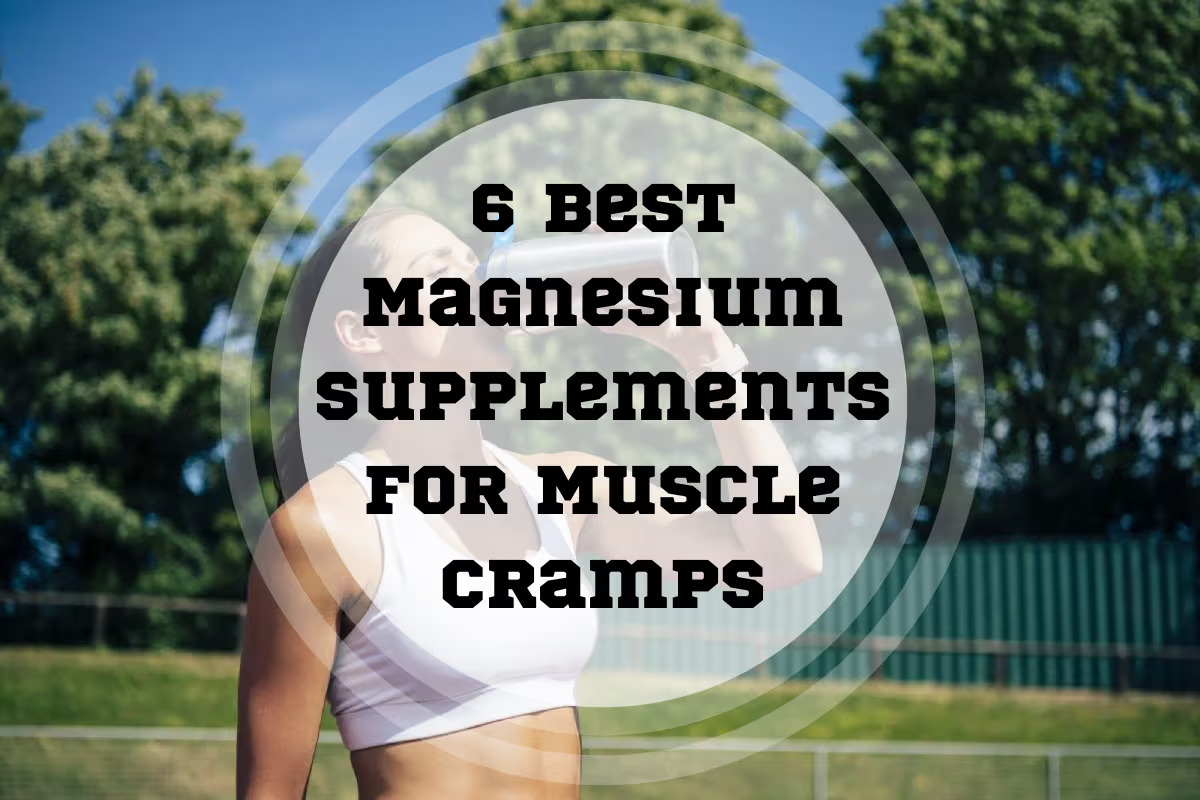
Top 6 Best Magnesium Supplements For Muscle Cramps Reviewed
- NOW Foods Magnesium Citrate – Top Pick
- MAG Bisglycinate By Transparent Labs –Runner-Up
- Life Extension Magnesium
- Vegan Magnesium By Plant Fusion
- Vegan Magnesium By Future Kind
- Sucrosomial® Magnesium By Legion
| Product | Total | Magnesium Form | Nutrition Label Transparency | Value for Money |
|---|---|---|---|---|
| NOW Foods | 30 | 10 | 10 | 10 |
| Transparent Labs | 29.5 | 10 | 10 | 9.5 |
| Life Extension | 29 | 10 | 9.5 | 9.5 |
| Plant Fusion | 28.5 | 9.5 | 9.5 | 9.5 |
| Future Kind | 28 | 9 | 9.5 | 9.5 |
| Legion | 27.5 | 9.5 | 9 | 9 |
1. NOW Foods Magnesium Citrate – Top Pick
- Supplement Form: Capsule Form
- Suitable For Vegans: Yes
- Magnesium Form: Magnesium Citrate
- Magnesium Per Serving (mg): 400
- Serving Per Container: 40 Capsules
- Serving Size: 3 Capsules
- Price Per Serving: ~$0.29
- Company Founded: 1968
- Recommended By Athletes: Jacky Hunt-Broersma and Josh Kerr
Our number one pick for the best magnesium supplement for muscle cramps is NOW Foods Magnesium Citrate. There are different forms of magnesium, but what type of magnesium is best for leg cramps? It seems that magnesium citrate and magnesium bisglycinate might have the greatest benefits, and it’s all due to their absorption in the body (bioavailability).
The one found in NOW Foods is magnesium citrate. Magnesium citrate happens when you combine magnesium with citric acid. It is one of the most popular magnesium supplements thanks to its high bioavailability compared to other forms, meaning it is highly absorbed and used in the body.
One of the benefits of magnesium is that it has a calming effect, which can help reduce muscle cramps and decrease stress symptoms. Evidence also suggests that it might help provide a protective effect on muscle damage.
However, currently, there is not a lot of scientific evidence, and the results are mixed. Since there are different forms of magnesium with different effects, it’s difficult to understand the relationship between magnesium supplements as a way to reduce muscle cramps.
Now, if you feel you are constantly getting muscle cramps and think it might be because you have low magnesium levels (looks like 48% of the US population doesn’t get the daily intake of magnesium), it can be a good idea to get bloodwork to determine if, in fact, you are low on this mineral.
Once you establish if this is the problem, it might be a good option to supplement with magnesium. However, keep in mind that excessive consumption of magnesium might lead to digestive issues (like diarrhea), impaired kidney function, low blood pressure, muscle weakness, and shortness of breath.
Still, NOW Food Magnesium Citrate provides 400 mg of magnesium with one dose, representing 100% of the daily recommended intake. But remember that in that case the bioavailability is not taken into consideration – it just shows how much magnesium is in the pill, not how much will be absorbed because it will differ from person to person.
One of its benefits is that it comes in vegetable capsules, making it a good choice for both people who follow a plant-based diet and those following a traditional diet.
Magnesium citrate happens when you combine magnesium with citric acid. It is one of the most popular magnesium supplements thanks to its high bioavailability compared to other forms, meaning it is highly absorbed and used in the body.
Positives:
Could be better:
2. MAG Bisglycinate By Transparent Labs – Runner-Up
- Supplement Form: Capsule Form
- Suitable For Vegans: Yes
- Magnesium Form: Magnesium Bisglycinate Chelate
- Magnesium Per Serving (mg): 300
- Serving Per Container: 30
- Serving Size: 3 Capsules
- Price Per Serving: ~$0.57
- Company Founded: 1995
- Recommended By Athletes: Kelsey Henson, Hafþór Júlíus Björnsson, and Paul Sklar
Our runner up for best magnesium for muscle spams we have MAG Bisglycinate by Transparent Labs. Now, keep in mind that we would all love to take a pill and get all those nasty cramps gone. The truth is that there is no best magnesium glycinate for leg cramps. Currently, there are different forms of magnesium that might help reduce muscle cramps, but they all are effective to possibly aid in muscle cramps. Now what they vary in is based on their bioavailability and secondary function.
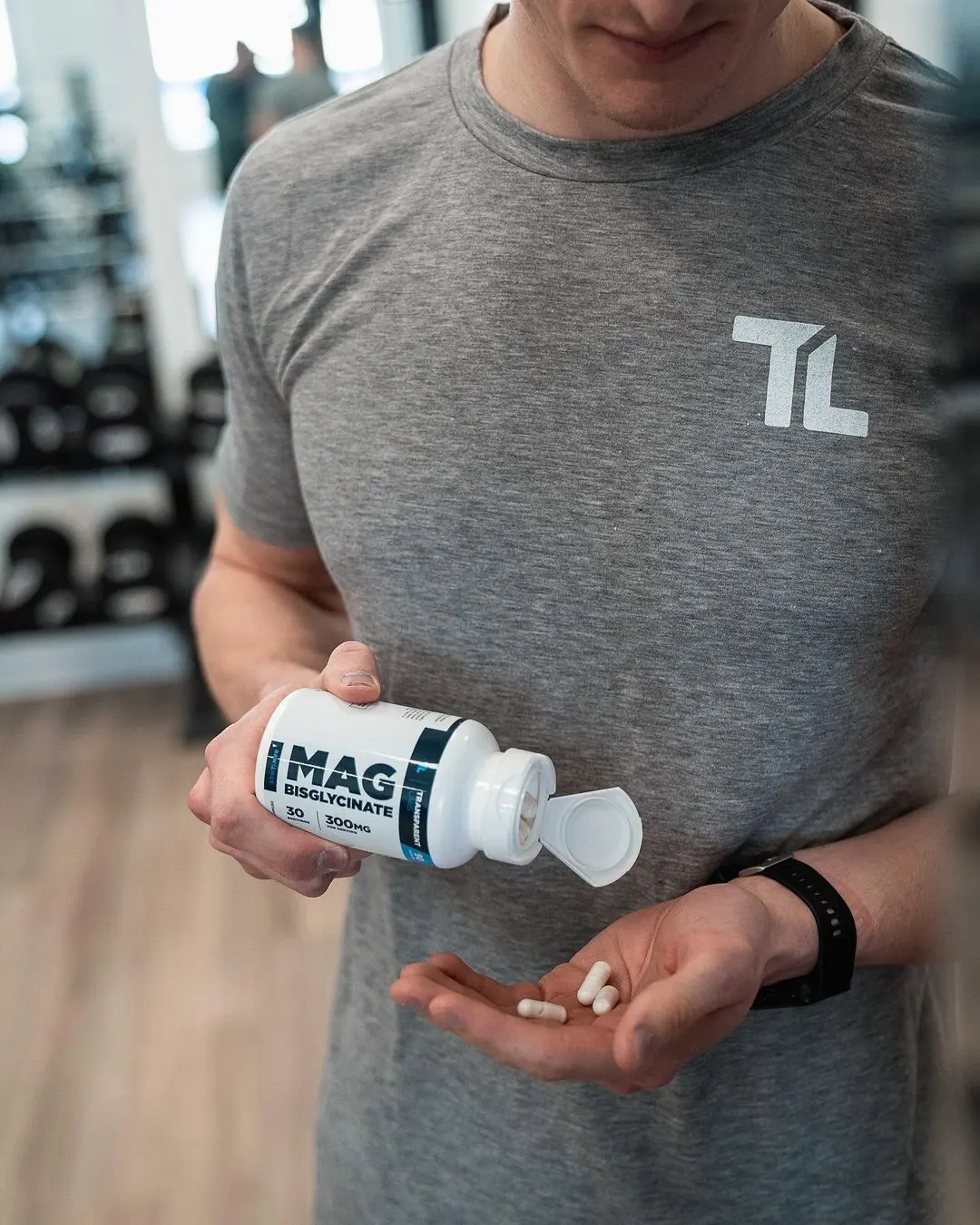
Magnesium bisglycinate is a form of magnesium. It combines magnesium and the amino acid glycine. This form is also popular among magnesium supplements since it is also highly bioavailable.
Just like magnesium citrate, it can help promote a relaxed state meaning it might have a positive effect on muscle spasms. However, there is still not enough evidence to validate the effect of magnesium on muscle cramps. Additionally, the effect also relies on the true cause of the cramp, such as low magnesium, potassium, or sodium or actually something else.
Still, there are other possible benefits to taking magnesium bisglycinate, such as reduced anxiety and improved sleep.
What we like about Transparent Labs is that it has the Informed Choice certification, meaning it undergoes strict testing to ensure the quality and safety of the supplement. It comes in a vegetable capsule, meaning it is suitable for those following a plant-based diet. And, it doesn’t have any artificial ingredients.
The truth is that there is no best magnesium glycinate for leg cramps. Currently, there are different forms of magnesium that might help reduce muscle cramps, but they all are effective to possibly aid in muscle cramps.
Positives:
Could be better:
3. Life Extension Magnesium
- Supplement Form: Capsule Form
- Suitable For Vegans: Yes
- Magnesium Form: Magnesium Citrate
- Magnesium Per Serving (mg): 100
- Serving Per Container: 100 servings
- Serving Size: 1 Capsule
- Price Per Serving: ~$0.06
- Company Founded: 1980
- Recommended By Athletes: Jared Firestone and Michael Ray Garvin
Next on our list we have Life Extension Magnesium. The supplement uses magnesium citrate as its main component. However, unlike NOW Foods magnesium supplement, it has a much lower magnesium content. You would need to take four capsules to reach the same amount of magnesium provided by the other brand.
Just like the supplement above, remember that there is no best magnesium for leg cramps. While magnesium citrate might aid some people, there can be other underlying conditions that are making those leg cramps from showing up.
This supplement has features worth mentioning, such as all its ingredients being non-GMO and gluten-free. It also has a very low price compared to other supplements. Keep in mind that if you start taking more capsules to have a higher magnesium content, it means you are going to need to purchase a tub faster. Still it can be a cheaper option than other magnesium supplements.
The supplement uses magnesium citrate as its main component. However, unlike NOW Foods magnesium supplement, it has a much lower magnesium content. You would need to take four capsules to reach the same amount of magnesium provided by the other brand.
Positives:
Could be better:
4. Vegan Magnesium By Plant Fusion
- Supplement Form: Capsule Form
- Suitable For Vegans: Yes
- Magnesium Form: Magnesium from Irish Seawater (Aquamin®)
- Magnesium Per Serving (mg): 400
- Serving Per Container: 30
- Serving Size: 3 Capsules
- Price Per Serving: ~$0.92
- Company Founded: 2009
- Recommended By Athletes: Madelaine Cait and Bradie Crandall
Another magnesium supplement for leg cramps that you can consider is Vegan Magnesium by Plant Fusion. It is made with Aquamarin® magnesium (magnesium di-hydroxide). However, one of its drawbacks is that it seems to have a low bioavailability (only 15% is absorbed).
Three capsules provide 400 mg of magnesium which in theory is enough to cover the daily recommended intake and might help reduce the risk of muscle cramps. The supplement contains enough capsules to last approximately one month.
One common complaint from several customer reviews is that the capsules seem to have a particular taste. While some might be able to handle it, others are not so keen on it.
Another magnesium supplement for leg cramps that you can consider is Vegan Magnesium by Plant Fusion. It is made with Aquamarin® magnesium (magnesium di-hydroxide).
Positives:
Could be better:
5. Vegan Magnesium By Future Kind
- Supplement Form: Capsule Form
- Suitable For Vegans: Yes
- Magnesium Form: Magnesium Bisglycinate Chelate and Magnesium Oxide
- Magnesium Per Serving (mg): 200
- Serving Per Container: 30 Capsules
- Serving Size: 1 Capsule
- Price Per Serving: ~$0.73
- Company Founded: 2019
- Recommended By Athletes: Helen Hangg
Fifth on our list of best magnesium supplements to help with muscle cramps is Vegan Magnesium by Future Kind. Each capsule contains a mix of magnesium bisglycinate and magnesium oxide. While magnesium oxide is widely used in supplements due to its low price, it is poorly absorbed in the body.
But since the supplement also uses magnesium bisglycinate, it provides a high-quality magnesium option.
Each capsule contains 200 mg of magnesium, which supplies again in theory around 50% of the daily recommended intake (if bioavailability would be 100%). While for some, it might be enough to help reduce muscle cramps, others might need to take two capsules to provide enough magnesium. If this is the case, the supplement might run faster.
Vegan Magnesium by Future Kind, each capsule contains a mix of magnesium bisglycinate and magnesium oxide. While magnesium oxide is widely used in supplements due to its low price, it is poorly absorbed in the body.
Positives:
Could be better:
6. Sucrosomial® Magnesium By Legion
- Supplement Form: Capsule Form
- Suitable For Vegans: Yes
- Magnesium Form: Sucrosomial® magnesium
- Magnesium Per Serving (mg): 150
- Serving Per Container: 120
- Serving Size: 1 Capsule
- Price Per Serving: ~$0.25
- Company Founded: 2014
- Recommended By Athletes: JPG Coaching and Brendon Wharton
Finally, the last option we have to help you combat your muscle cramps is Sucrosomial® Magnesium by Legion Athletics. What makes this a unique supplement is that it is made with sucrosomial® magnesium. This is magnesium that contains sucrose esters of fatty acids. According to research, this increases the bioavailability of magnesium.
While the supplement only contains 150 mg of magnesium, the company decided to use a lower dosage than other supplements to ensure you get magnesium from other food sources. However, if you are not getting enough daily magnesium (spinach, avocado, chocolate, pumpkin seeds, banana, and cashews), you might want to take two pills.
Finally, the last option we have to help you combat your muscle cramps is Sucrosomial® Magnesium by Legion Athletics. What makes this a unique supplement is that it is made with sucrosomial® magnesium.
Positives:
Could be better:
Do Magnesium Supplements Really Help With Muscle Cramps?
Magnesium is one of the most abundant minerals in the body. It’s involved in over 300 functions, including nerve function, muscle contraction and relaxation.
According to research, it seems that almost half of the US population doesn’t consume enough magnesium in their diet. The best way to determine if you have a magnesium deficiency is through bloodwork.
Common symptoms of low magnesium include muscle twitches and cramps, osteoporosis, muscle weakness, fatigue, and irregular heartbeat. If you experience any of the previous symptoms, talk to your doctor to get bloodwork and determine the root cause of the problem.
Now, if you are only suffering from leg cramps or muscle cramps, taking a magnesium supplement can be a safe way to treat the symptoms. However, most studies show that supplementing with magnesium has little to no difference in muscle cramps.
Still, there are some studies that show the potential benefits of supplementing with magnesium to help reduce muscle cramps. But, since there are different reasons why a muscle cramp might occur, it is difficult to pinpoint exactly one reason or only one intervention.
More research is needed to determine the possible benefits of magnesium supplements for muscle cramps and their long-term benefits.

What Else Can Cause Muscle Cramps?
Magnesium is not the only culprit when it comes to muscle cramps. There are other factors that can increase the risk of muscle cramps, such as sodium and potassium deficiency, calcium deficiency, dehydration, training in the heat, training too intense, or having medical issues.
Let’s go over each one.
1. Potassium Deficiency
Potassium is another essential nutrient that regulates muscle contractions, nerve impulses, and fluid balance. Due to the consumption of processed foods, it’s said that most people don’t get the daily intake of potassium (just like with magnesium).
Low potassium (hypokalemia) can lead to symptoms such as fatigue, weakness, heart palpitations, digestive issues, changes in blood pressure, and muscle cramps.
There are several ways potassium is lost in the body, one of the most common is through sweat. During training, you can lose a considerable amount of potassium. As a result, it can increase the risk of muscle cramps after a workout.
If you feel you have potassium deficiency, ask your doctor for any necessary bloodwork to confirm you are indeed low in potassium. If that is the case, you can take a potassium supplement or increase the foods high in potassium, such as bananas, avocados, lentils, apricots, and butternut squash.
2. Calcium Deficiency
Calcium is another essential mineral in the body. Besides being important for bone health, it also plays a crucial role in muscle contraction. A low dietary intake of calcium can lead to symptoms such as weakened bones, numbness, tingling in the hands, and muscle cramps or spasms.
Just like any other nutrient deficiency, make sure you get the appropriate blood work to determine if you are low in calcium. To boost your calcium intake, you can add a calcium supplement, or you can add high-calcium foods, such as dairy, leafy greens, salmon, and sardines.
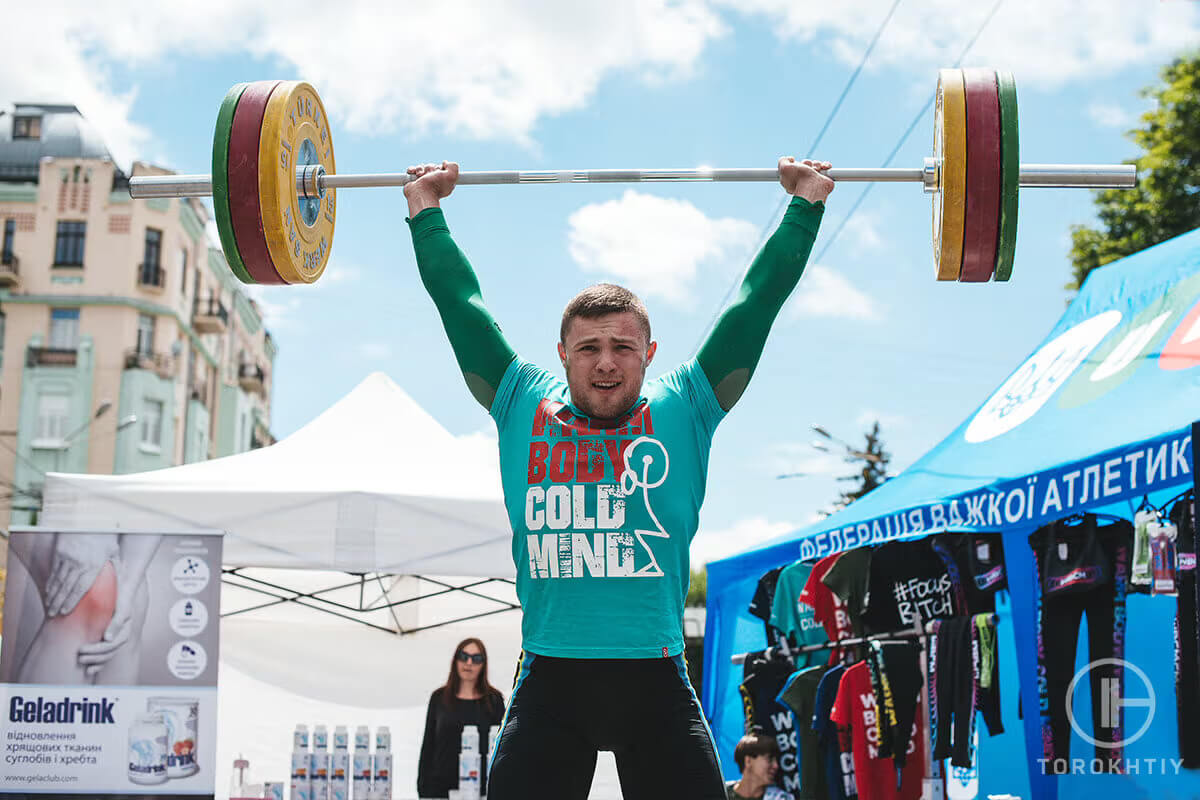
3. Dehydration
When the body loses a lot of water, it disrupts electrolyte balance . As a result, it can increase muscle weakness or cause muscle cramps.
Make sure you are drinking enough water, especially if you are working out and it lasts for more than 90 minutes. If the sessions last more than 90 minutes of intensive workout, it might be a good idea to supplement with 30-60 grams of carbs per hour, along with 500-600 mL of water, electrolytes, and small amounts of protein or AA (5-15 grams).
If you don’t know how much water you need, consult with our team or a health professional that can give you a detailed analysis of how much you need based on weight and activity levels.
For a standard recommendation, divide your body weight in pounds by half to get the total ounces of water. For example, if you weigh 200 pounds, you should drink at least 100 ounces of water daily.
4. Training In The Heat
Training in the heat not only increases the risk of dehydration, but the heat can have a negative effect on muscles. The hotter the weather, the harder the muscles have to work and the more electrolytes you lose. Changes in sodium and potassium levels can increase the risk of muscle cramps.
So, if you are training in hot weather, an electrolyte drink may be better than just water. In fact, sometimes water intake after a workout might increase muscle cramps, while an electrolyte drink can help reduce the incidence.
5. Too Intense Training
Just like training in the heat, too intense training can result in more water and electrolyte loss. As a result, it can lead to more muscle cramps.
Also, if you are not careful, training too hard might cause too much muscle fatigue, increasing the risk of exercise-induced muscle cramps. Make sure you are taking care of your body. Don’t expose it to unrealistic exercises and give the body enough time to rest, and once for a while visit a good physical therapist to get the right care.
6. Medical Issues
Finally, there might be certain medical conditions, such as circulation problems and liver problems, that can increase muscle cramps. Also, there might be certain medications that can increase muscle spasms. So, if you are taking any medication, ask your doctor what possible side effects might arise and tell them about any possible side effects you are experiencing.
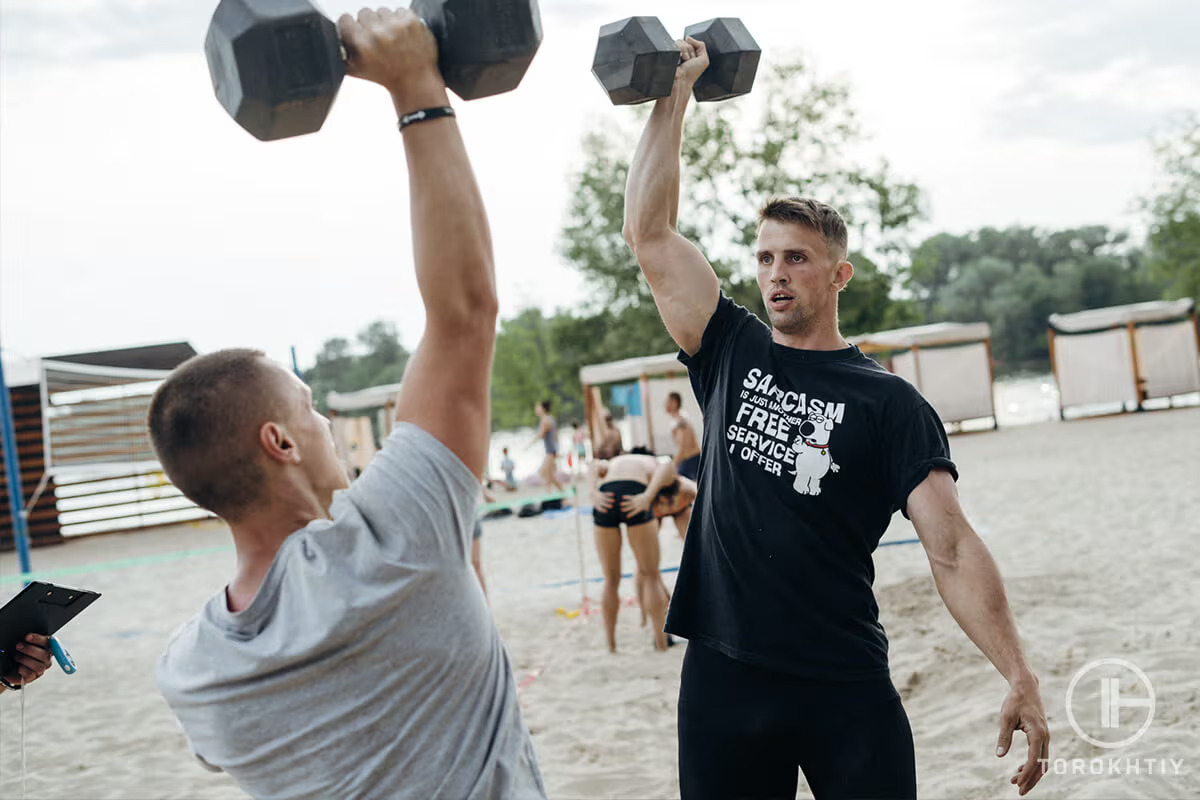
How To Find The Best Magnesium Supplement For Muscle Cramps?
If none of the previous magnesium supplements are available, or you have one in mind, how do you know it’s the best option? Here are some things to consider when purchasing the best magnesium supplement.
1. Form of Magnesium
The first thing you need to consider is the form of magnesium. Not all forms of magnesium are highly bioavailable, meaning they are not easily absorbed in the body. The best magnesium forms include magnesium citrate and magnesium bisglycinate. As mentioned, they have the highest absorption rate in the body.
With that being said, you might want to avoid supplements that use magnesium oxide as their main ingredient since it has a poor absorption rate.
2. Magnesium Per Serving
The recommended daily intake of magnesium is around 310-320 mg for women and 400-420 mg for men. Before you consider supplementing, make sure you get adequate bloodwork to determine if you are deficient at all.
Once you determine if you are low in magnesium, you can supplement or add foods with a higher magnesium content. If you are including magnesium-rich sources, you can search for a supplement that provides at least 50% of the daily recommended intake.
If you notice no changes and still are getting muscle cramps, you can increase the dose or determine if there are other factors that are increasing the frequency of muscle cramps.
3. Price Per Serving
Finally, you want to get a supplement that aligns with your budget. There are great options that have a low cost but still provide high-quality magnesium.
Keep in mind that magnesium oxide is one of the cheapest forms of magnesium. So, don’t just purchase a supplement based on its price. Make sure you read the nutritional label to check what ingredients it has and if it’s worth the purchase.
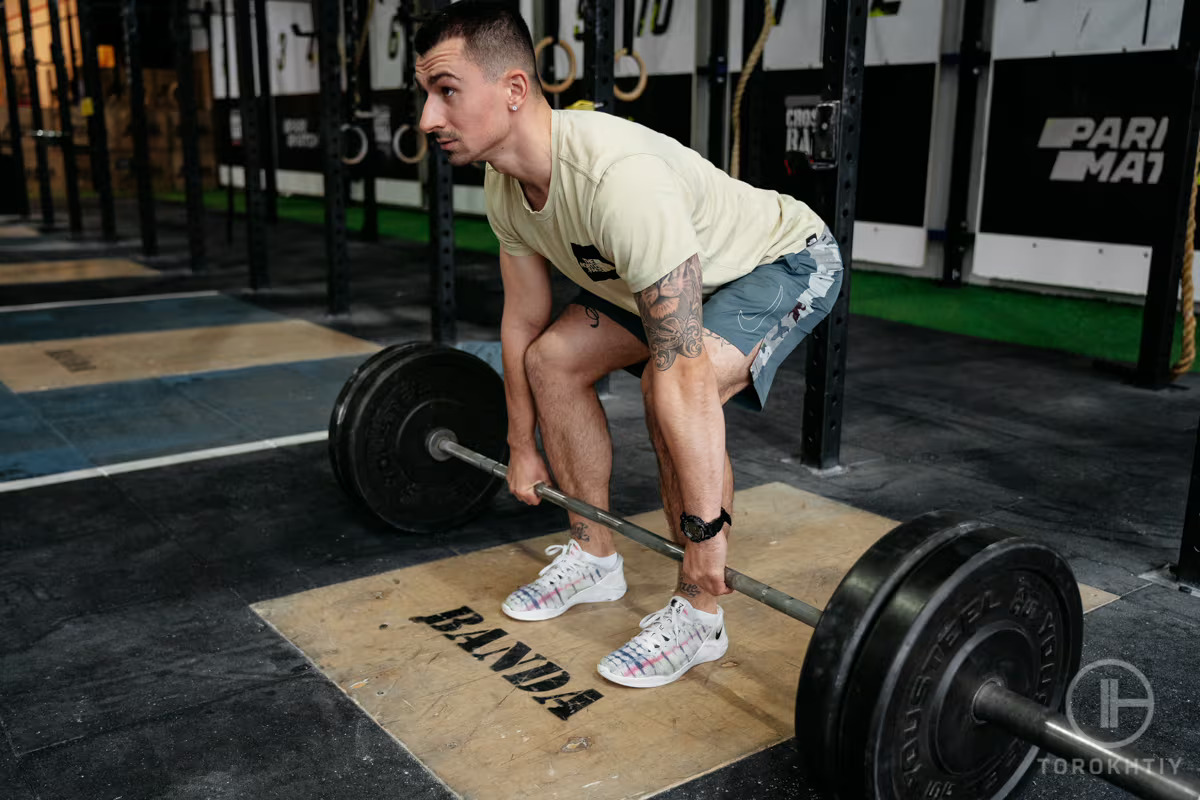
How To Find The Best Magnesium Supplement For Muscle Cramps?
Now that you know what can increase the risk of muscle cramps, there are other ways to prevent them from happening besides taking a supplement. Some options include stretching, walking, having the right hydration, getting regular massages, and applying heat and ice.
1. Stretching
Research shows that stretching can help significantly reduce muscle cramps. Since muscle cramps are involuntary contractions of the muscle, stretching the muscle might help loosen it up or prevent them from appearing.
There are several stretches you can try. However, make sure you talk with your doctor or physio to determine which is the best routine based on the muscles that are getting constantly cramped.
2. Hydration
As seen, dehydration can increase the risk of muscle cramps. While water might be enough in some cases, for hot weather or if you are sweating profusely, it is better to include an electrolyte beverage.
Make sure you are also getting enough nutrients throughout the diet. Have a varied and balanced diet full with fruits, vegetables, and natural ingredients to prevent any possible nutrient deficiency.
3. Massage
Massaging the muscle that is cramped can help relieve the pain and prevent them from cramping. If a muscle spasm occurs, stretch and then gently massage the muscle to allow it to go back to its original form.
If you are constantly getting muscle cramps, have a regular visit to a physical therapist or a certified massage therapist.
4. Applying Heat
Applying heat might be a way of helping reduce muscle cramps. Heat expands blood vessels allowing more blood flow to reach the area and help with muscle tension. As a result, it can relax muscle fibers and improve motion. Good thing is that heat can also reduce the activity of the nerve endings and sensitivity of pain receptors.
There are different ways to apply heat. You can use heat pads, take a hot bath, or one of our favorite treatments - get into a sauna. Remember if you do the latter to hydrate properly so you don’t undermine all the benefits.
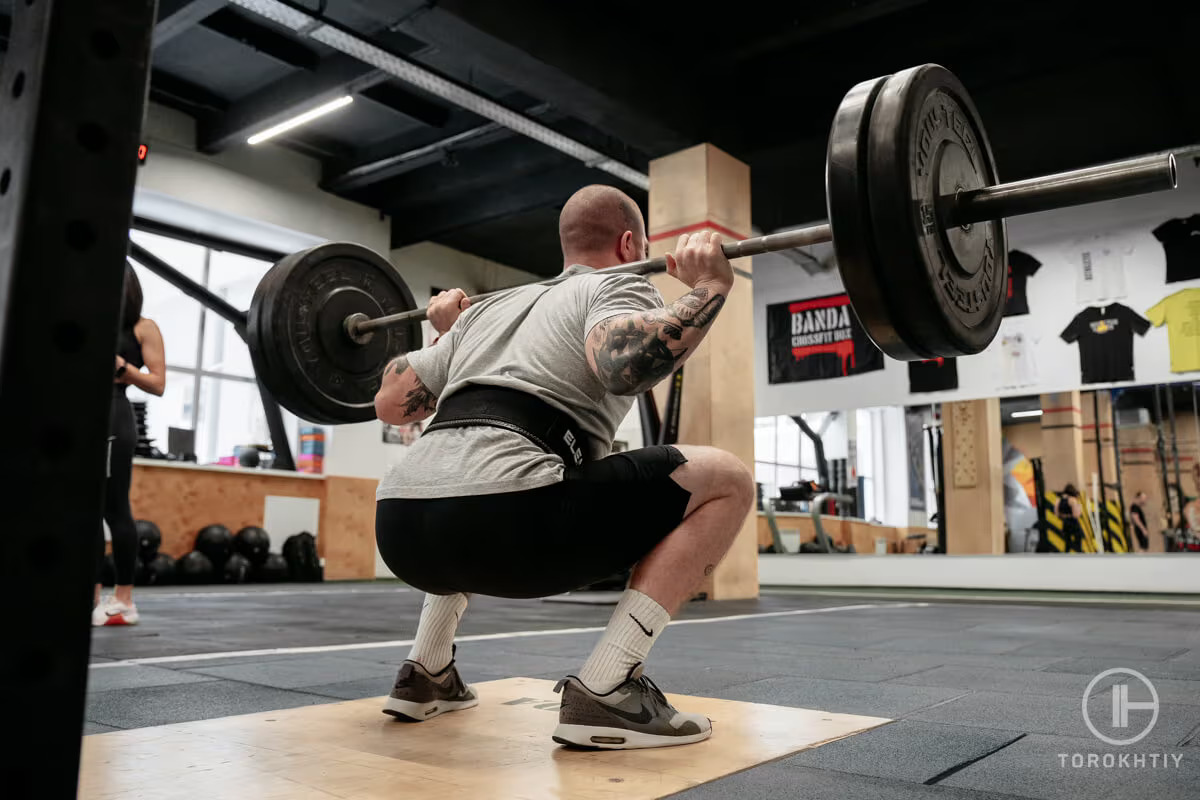
FAQ
Do Leg Cramps Mean Low Magnesium?
Low magnesium can be one of the reasons why your legs are cramping. However, there are other possible causes of leg cramps, such as low sodium, potassium and calcium levels, dehydration, training too hard, and underlying medical conditions.
Which Type Of Magnesium Is Best For Muscle Cramps?
The best type of magnesium for muscle cramps is magnesium citrate or magnesium bisglycinate. Both are high bioavailable options, meaning that they are highly absorbed in the body.
What Food Is Highest In Magnesium?
There are different foods that are high in magnesium. If you want to increase your magnesium intake try adding foods such as dark leafy greens, nuts and seeds, cacao (dark chocolate) beans and legumes and whole grains, even potatoes have some decent amount of magnesium.
Conclusion
If you are constantly getting muscle cramps, consult with a doctor to determine if one of the possible reasons is low magnesium. If you are adding high magnesium foods such as pumpkin seeds, chia seeds, and spinach but with no result, it might be time to add a magnesium supplement - but it’s quite easy to check if you’re deficient.
There are different types of magnesium. However, not all of them are absorbed equally in the body. The best types of magnesium are magnesium citrate and magnesium bisglycinate since they have a high bioavailability. On the contrary, magnesium oxide is one to be avoided due to its poor absorption.
The best magnesium supplement to help reduce muscle cramps is NOW Foods Magnesium Citrate. It contains a highly bioavailable source of magnesium, and since it provides 400 mg of magnesium, it can easily help you reach the daily recommended intake.
But, keep in mind that there aren’t too many studies linking magnesium supplementation and muscle cramps. Additionally, taking too much magnesium might cause diarrhea, weakness, sleepiness, low blood pressure, and shortness of breath.
Still, it might be a good idea to supplement if you seem to have a magnesium deficiency. Make sure you get regular bloodwork to help you determine which nutrients you are low on and provide a more personalized supplementation approach.
Have you tried one of the magnesium supplements above? Let us know in the comments if it helped reduce your cramps.
Also read:
- Powerlifters Diet
- Best Krill Oil Supplement
- Best Bcaa for Women
- Best Post Workout Recovery Drink
- Best Nitric Oxide Workout Supplement
- Best Supplements for Muscle Recovery
- Best Electrolyte Powder
- Best Endurance Supplements
- Best Pump Supplement
- Best Supplements for Vascularity
References:
- Tanja Werner, "Assessment of bioavailability of Mg from Mg citrate and Mg oxide by measuring urinary excretion in Mg-saturated subjects", NCBI, https://pubmed.ncbi.nlm.nih.gov/32162607/ (accessed Aug 1, 2019).
- Alfredo Córdova, "Impact of Magnesium Supplementation in Muscle Damage of Professional Cyclists Competing in a Stage Race", MDPI, https://www.mdpi.com/2072-6643/11/8/1927 (accessed August 13, 2019).
- "Magnesium", NIH, https://ods.od.nih.gov/factsheets/Magnesium-HealthProfessional/ (accessed August 21, 2023).
- Valeria D. Felice, "Bioaccessibility and Bioavailability of a Marine-Derived Multimineral, Aquamin-Magnesium", NCBI, https://www.ncbi.nlm.nih.gov/pmc/articles/PMC6073474/ (accessed Jul 10, 2018).
- Mette Konow Bøgebjerg Dolberg "Pharmacokinetic Profile of Oral Magnesium Hydroxide", NCBI, https://pubmed.ncbi.nlm.nih.gov/27412366/ (accessed Jan 11, 2017).
- M Firoz, "Bioavailability of US commercial magnesium preparations", NCBI, https://pubmed.ncbi.nlm.nih.gov/11794633/ (accessed Dec 14, 2001).
- E Brilli, "Magnesium bioavailability after administration of sucrosomial® magnesium", NCBI, https://pubmed.ncbi.nlm.nih.gov/29630135/ (accessed Mar 22, 2018).
- Andrea Rosanoff, "Suboptimal magnesium status in the United States", NCBI, https://pubmed.ncbi.nlm.nih.gov/22364157/ (accessed Feb 15, 2012).
- Olha Barna, "A randomized, double-blind, placebo-controlled, multicenter study assessing the efficacy of magnesium oxide monohydrate in the treatment of nocturnal leg cramps", Biomedcentral, https://nutritionj.biomedcentral.com/articles/10.1186/s12937-021-00747-9 (accessed Oct 31, 2021).
- M. Katherine Hoy, "Potassium Intake of the U.S. Population", NCBI, https://www.ncbi.nlm.nih.gov/books/NBK587683/ (accessed Sep 2022).
- Wing Yin Lau, "Water intake after dehydration makes muscles more susceptible to cramp but electrolytes reverse that effect", NCBI, https://www.ncbi.nlm.nih.gov/pmc/articles/PMC6407543/ (accessed Mar 05, 2019).
- Joannes M. Hallegraeff, "Stretching before sleep reduces the frequency and severity of nocturnal leg cramps in older adults", ScienceDirect, https://www.sciencedirect.com/science/article/pii/S1836955312700681
- Jari A. Laukkanen MD, "Cardiovascular and Other Health Benefits of Sauna Bathing", ScienceDirect, https://www.sciencedirect.com/science/article/abs/pii/S0025619618302751
Why Trust Us?
With over 20 years in Olympic Weightlifting, our team does its best to provide the audience with ultimate support and meet the needs and requirements of advanced athletes and professional lifters, as well as people who strive to open new opportunities and develop their physical capabilities with us.
All products we select are primarily approved and tested by the Olympic Weightlifting Champion Oleksii Torokhtiy. Under his guidance, we provide honest and reasonable assessments of the products we review by checking their characteristics, packaging, design, comfort and durability features, and general product rating. We select products from only high-quality and trusted sports brands, thus vouching for their quality.
The product testing process is described in more detail here
Author: Jacek Szymanowski
Certified Nutritionist,
M.Sc.Eng. Biotechnology
Performance Architect,
Strength and Conditioning Specialist
With over 30 years of fighting experience, specialization in nutrition coaching for athletes, and expertise in metabolic health and dietary strategies, Jacek offers a comprehensive approach to optimizing your performance and well-being. Backed by a Master of Science degree in Biotechnology, Jacek remains at the forefront of scientific advancements, ensuring that his coaching is always evidence-based and up-to-date.
If you have any questions/suggestions/any other inquiries considering product reviews, you can reach out to us via email – [email protected]

